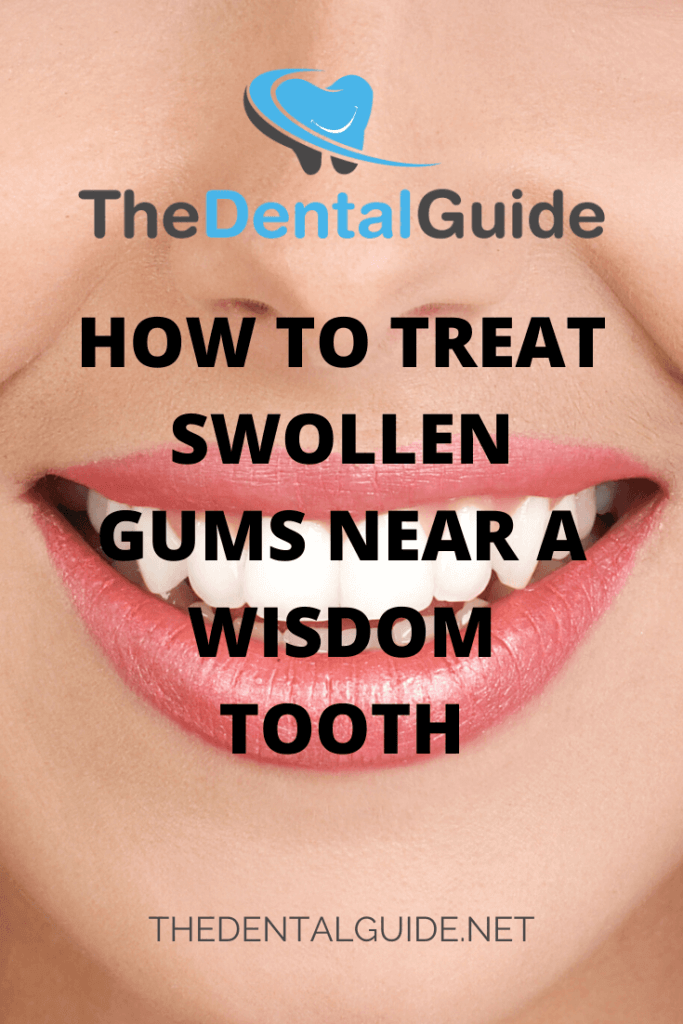Everyone knows that it’s important to take care of your teeth, but looking after your gums is essential too. Gums frequently become inflamed, painful, or infected when wisdom teeth start to emerge, necessitating dental care. Fortunately, learning how to treat swollen gums near a wisdom tooth is straightforward and simple.
What Causes Swollen Gums?
Healthy gums are pink and firm, while swollen gums may be red and tender to the touch. Most of the time, plaque buildup (when food particles linger and stick to the teeth) causes swollen gums. Many people have swollen gums at some point during their lives, especially if they’re not practising daily oral hygiene.
Still, sometimes over-cleaning can cause gum damage. If you scrub too hard with your toothbrush, that can cause gum irritation. In some cases, misaligned teeth, or an unclean or ill-fitting mouth appliance can result in swollen gums.
Bleeding and sore gums are also caused by hormones during puberty. Birth control pills and other hormonal supplements can also encourage bleeding and gum sensitivity. Swollen gums can also be due to anaemia, scurvy, certain cancers, or immunodeficiency disorders. Even heart disease can sometimes be responsible.
However, swollen gums around a wisdom tooth are likely to arise from impacted wisdom teeth pushing into your other teeth. Partially erupted wisdom teeth can also cause a sore jaw and bad breath. As always, a dentist will be able to confirm the source of any gum discomfort and help you decide on a treatment plan.
Risk Factors of Swollen Gums
If gums swell, they may create a gap between them and the teeth, where, if left unchecked, infections can grow from bacteria. Natural factors, like old age and heredity, can also increase your risk of gum disease.
Smoking is a risk factor as well. Nicotine constricts blood vessels, so there isn’t as much puffiness, and the problem might not be immediately visible. But staining, bleeding, and necrosis are all associated with long-term nicotine usage.
Treatment Options
To stop swollen gums from worsening, you can switch to a soft-bristled toothbrush. Make sure you use the brush gently. Pressing down firmly on your teeth and gums while brushing can cause damage.
Swishing with salt water is a classic remedy for oral health since salt helps to kill bacteria. Mix a teaspoon of salt with warm water, make sure it’s thoroughly dissolved, and swish the solution around in your mouth for at least one minute before spitting out. Repeat as necessary throughout the day.
You can make a similar solution with a small amount of hydrogen peroxide, but make sure to rinse your mouth with water thoroughly before and after. Be careful not to swallow any of the solution, as hydrogen peroxide can be poisonous if ingested.
Making a hot or cold compress by soaking a clean cloth in warm water or placing an ice pack against your face can help wisdom tooth gum pain. Be sure not to put any ice directly on your skin, and instead wrap the ice pack in a soft cloth before applying.
You can purchase oral anaesthetic gels that combine natural and synthetic properties to numb the pain. You could also crush and mix ginger and salt until it had formed a thick paste, which you can leave on your gums for several minutes. Baking soda and turmeric can be applied similarly.
Still, visiting your dentist is the best way to rid yourself of swollen gums, especially those around impacted or emerging wisdom teeth.
